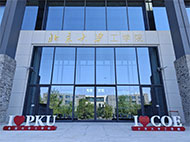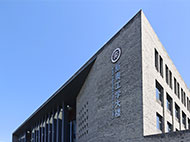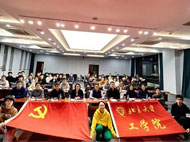题目:Uncertainty and Credibility of Ground Water Models
报告人: Dr. Mary C. Hill
U.S. Geological Survey
主持人:郑春苗 教授
时间:6月17日(周二)下午2:00
地点:力学楼434会议室
报告内容摘要:
Understanding, reducing, quantifying, and communicating uncertainty is critical to the utility of mathematically based ground-water models. Here, a methodology is presented that includes an initial conceptual step, a discussion of how to quantify uncertainty, and six underlying methods and evaluations. The conceptual step is to use weather predictions to show how, when the general variability of predictions is understood, presenting measures of prediction uncertainty increases the credibility of predictions. It is suggested that understanding of the variability typical of ground-water systems can be attained through intensely measured systems and the relation of measurements to model results. The eight technical steps include (i) clear consideration and accounting of the errors in data used for model development; (ii) definition and accounting of prediction uncertainty related to parameters not necessarily estimated by inverse methods; (iii) applying prior information in a nonlinear regression rather than a Bayesian sense, (iv) sensitivity analysis using fit-independent local methods for quick evaluations and global methods when computationally feasible; (v) model calibration methods that take advantage of inversion techniques; (vi) additional sensitivity analysis methods suitable for calibrated models, including methods that can be used to identify what new data are likely to reduce prediction uncertainty; (vii) use of inferential statistics such as linear and nonlinear confidence intervals for expeditious quantification of uncertainty, and global methods when computationally feasible; and (viii) repeating the previous steps using alternative models. The global methods of steps (iv) and (vii) are commonly called Monte Carlo methods. While we recommend specific methods for each step, they have strengths and weaknesses, which we explain and reflect against alternatives that appear in the literature. Progress in resolving some of the weaknesses will require serious consideration by the statistical community of the problems encountered in models of complex natural systems. We illustrate major aspects of the methodology using examples from groundwater systems, but the methods are generally applicable.
报告人简介:
Dr. Mary C. Hill is a research hydrologist with the U.S. Geological Survey in Boulder, Colorado. She authored MODFLOWP, the popular PCG2 solver for MODFLOW, and articles on solvers, nonlinear regression, confidence intervals, and calibration methodology. She co-authored UCODE, MODFLOW-2000, UCODE_2005, OPR-PPR, and MMA. She has experience modeling saltwater intrusion, groundwater supply, stream interaction, and regional groundwater flow and transport beneath the Yucca Mountain proposed USA high-level nuclear waste site. She has taught semester and short courses for 26 years. She received the 2000 American Society of Civil Engineers Huber research prize, the National Ground Water Association 2001 Darcy lectureship and 2005 M. King Hubbert Award, and is president of the ICGW of IAHS. Dr. Hill holds a PhD in Civil Engineering from Princeton University.
欢迎广大师生参加!要求能源系研究生必须参加!
联系人:刘杰 博士,010-82529073










